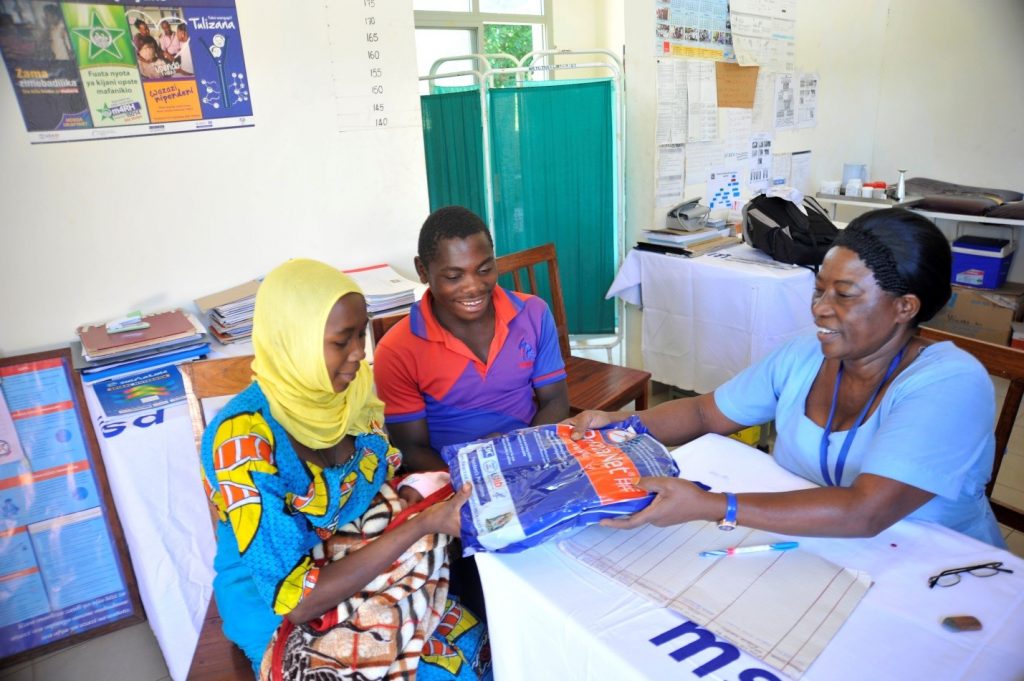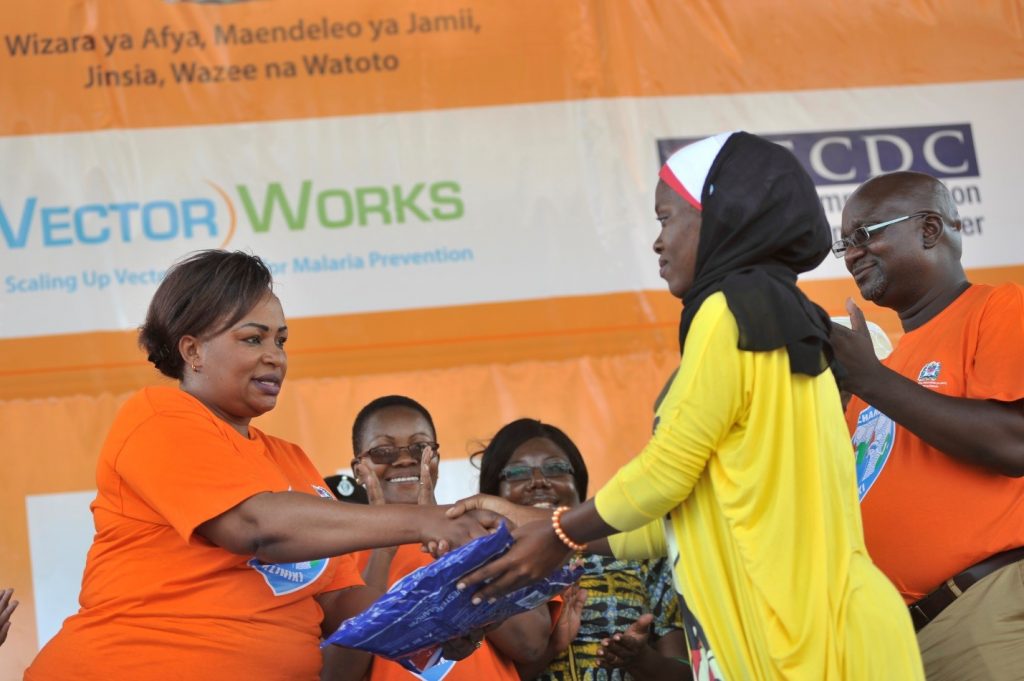In May 2016, the PMI-funded VectorWorks project partnered with the Government of Tanzania for the Chandarua Kliniki (Bednet at the Clinic) program to deliver insecticide-treated nets (ITNs) to pregnant women and children through Tanzania’s Reproductive and Child Health Services (RCHS). The RCHS delivers ITNS directly to their target populations during standard antenatal care and immunization appointments.
Dr. Wedson Sichawle, regional chief physician of Mtwara, sees the Chandarua Kliniki program as “our bid to find the final and lasting solution for [malaria].” To achieve the greatest impact, Tanzania decided to scale up distribution beyond Mtwara and into eight additional regions – Mwanza, Lindi, Geita, Ruvuma, Kagera, Mara, Simiyu, and Kigoma – by May 2017. This effort involved constant coordination between VectorWorks and many parts of the Government of Tanzania, including
-
-
-
-
-
-
-
-
-
-
-
-
-
-
-
- the National Malaria Control Program (NCMP),
- the Ministry of Health, Community Development, Gender, Elderly and Children,
- the President’s Office – Regional Administration and Local Government,
- the Medical Stores Department (MSD), and
- individual health facilities and health care workers.
-
-
-
-
-
-
-
-
-
-
-
-
-
-
To protect the most vulnerable Tanzanians from the scourge of malaria, VectorWorks supported classroom trainings of the regional and district-level staff, on-the-job trainings for health care workers, transportation of ITNs to individual health facilities, and ongoing supervision of ITN distribution to pregnant women and infants at health facilities.
To successfully transport and regularly resupply ITNs to health facilities in nine regions, VectorWorks and the Government of Tanzania worked with a private distribution and logistics company, Simba Logistics. This partnership allowed Simba Logistics to extend their expertise in logistics management and transportation to malaria prevention. Simba Logistics uses a real-time mobile and web-based delivery and alert system for this activity. The system sends alert messages to health care workers before and after a delivery of ITNs and allows the project staff to monitor the delivery completion status and quantities of ITNs delivered in each of the health facilities across the country. The ITNs, like other essential health products, are transported directly from zonal warehouses to all health facilities on a quarterly basis. From May 2016 to September 2017, the project distributed a total of 1,424,000 ITNs to health facilities in these nine regions.
The VectorWorks project strives for sustainability, and works with the Government of Tanzania during each step of the process. VectorWorks is providing capacity-building guidance so the Government of Tanzania can gradually take over an increasing portion of the program. Tanzania’s MSD in Mwanza and Tabora are now responsible for storage of ITNs, while in Sengerema and Ilemela districts, the MSD is now directly responsible for distribution of ITNs. It is the vision of the Government of Tanzania to become fully responsible for distributing ITNs in the near future.
Alongside the distribution of ITNs, VectorWorks collaborated with the NMCP and the University of Dar es Salaam to develop an accountability dashboard to help the regions and districts better track dissemination of ITNs to pregnant women and infants. This dashboard incorporates existing platforms, and it is used to analyze data on the ITNs distributed and patients seen at the health facilities. The dashboard flags variances and local government has used it to identify health facilities with variances requiring increased supervision. Additionally, the dashboard includes a decision tree that local governments have found helpful when needing to make recommendations to health facilities. The dashboard was first rolled out in 2017 in Mwanza and Mtwara and will soon be scaled up nationally.
During 2018 and 2019, VectorWorks will continue to scale up distribution of ITNs through RCHS to health facilities for pregnant women and infants. The project will also support the Government of Tanzania in taking increasing ownership of the activities, and roll out of the accountability dashboard nationally to monitor the program.


